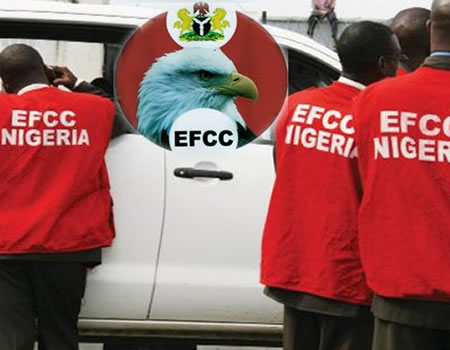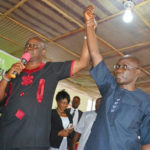Olujimi said the police, Economic and Financial Crimes Commission (EFCC), Independent Corrupt Practices Commission (EFCC), continued to lose corruption cases in court owing to lack of thorough investigation and its attendant insufficient evidence for due prosecution.
Olujimi spoke as Chairman at the 2017 summit of The Association of Professional Bodies of Nigeria, Oyo State branch, themed, “The Roles of Professionals in Fighting Corruption in Nigeria”, held in Ibadan, on Friday.
He also enjoined Nigerians not to expect hurried judgements when corruption cases were brought before the courts.
“From 2003 till today, even though the EFCC, ICPC and police make arrests and take people to court, corruption still seems to be on the front burner, and is fighting back.”
“As practitioners of the law, we have come to know that investigation of cases is not thorough. The judge was not there when the offence was allegedly committed and can only rely on the evidence produced by the prosecution.”
“So, if that evidence cannot sustain the charge, the judge releases the accused. It is therefore very important for the EFCC, ICPC to ensure that they carry out a thorough investigation and there is no need for them to rush to court just to please the public.”
“The public would want the judge to convict the accused person in one or two weeks. It doesn’t work like that anywhere in the world.”
“The UK, US may trail the suspect for a year before they make an arrest. Before they make an arrest, they would have gathered all evidence, such that the lawyers would guide the police so as to gather the necessary evidence to sustain the charge.”
“In Nigeria, it is only the police, EFCC that carries out their investigation alone without carrying along the prosecution, and so, there are gaps in the investigation, which the defence counsel exploits to his advantage.”
“The public needs to know that the procedure for trial in court does not move as rapidly as they think, except where an accused person pleads guilty.”
“The prosecution may be presenting his case for a year and defence has not started because he has many witnesses. The judge taking the case also has other cases to attend to.”
“So, we have to be patient because there is a procedure that has to be followed and by this, we will begin to have better results in the prosecution of corruption cases,” Olujimi said.
He also admonished professional bodies to abide by their code of ethics as a way of fighting corruption.
Special guest, Governor Abiola Ajimobi of Oyo state enjoined professionals to always embrace a code of ethics as a way to ensure societal order.
Represented by Commissioner for Finance and Budget, Mr Bimbo Adekanmbi, he emphasised that professional bodies must enforce their codes of conduct to enable them to discover erring professionals who are violating the working framework.
“Professional bodies have a role to reduce to the barest minimum, the menace of corruption to maintain the integrity of their profession and win the loyalty of investors as a way to assist in promoting economic development”, Ajimobi said.
The newly elected Chairman of the association, Prince Ganiyu Adebayo decried that some Nigerian professionals thrived on corruption while others were victims of corruption.
He, therefore, recommended the institution of the whistle-blowing policy by state and local governments, firms and organization in the country.






